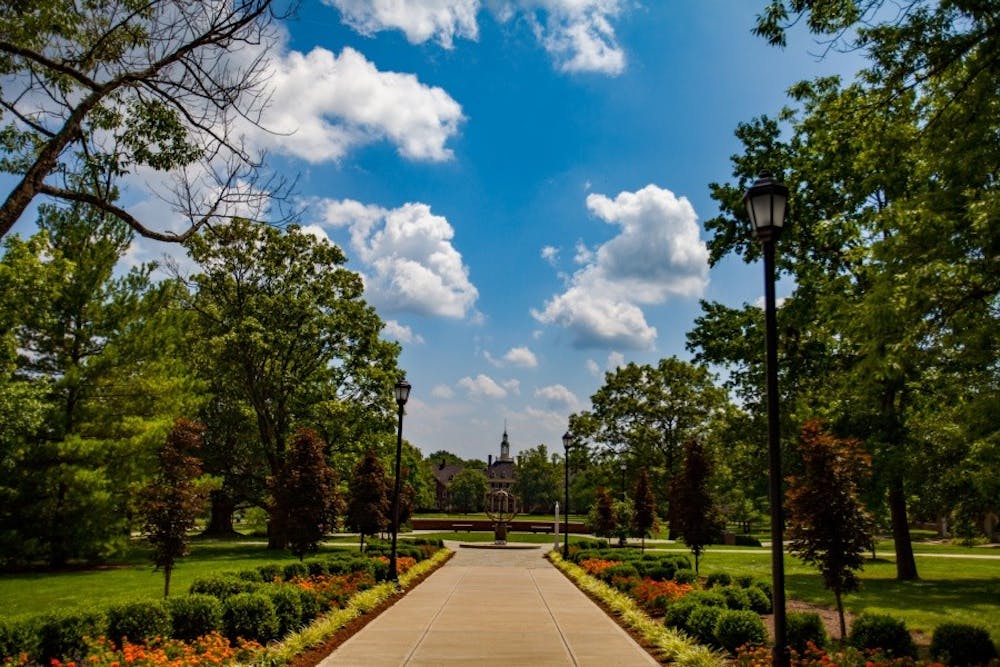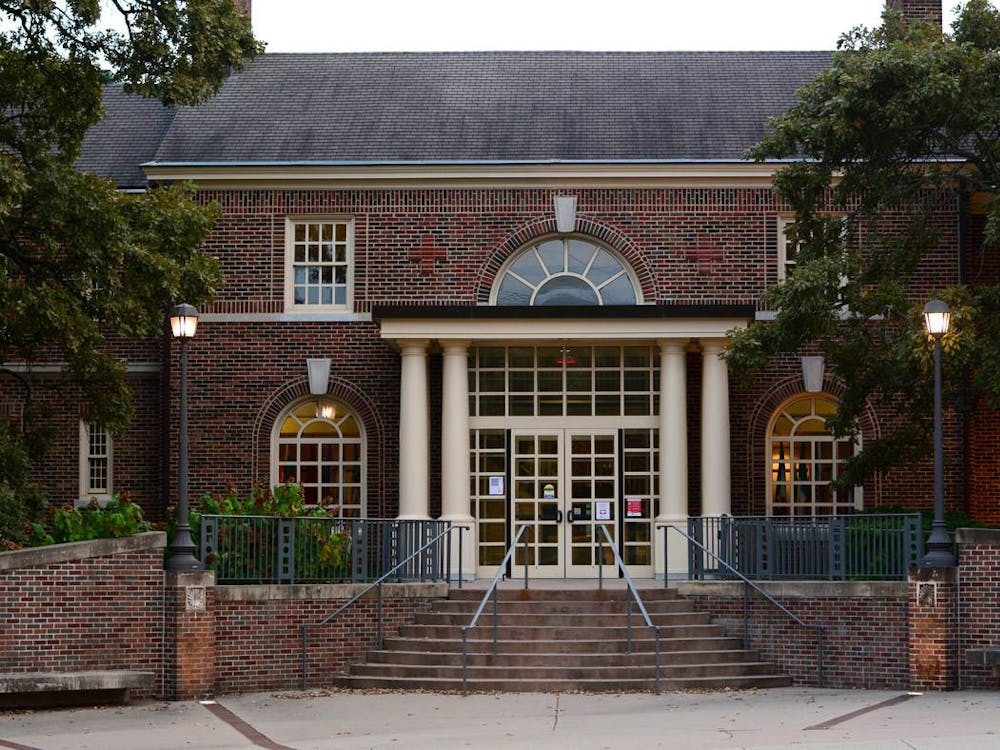By Megan Zahneis, News Editor
Last Tuesday, Miami's senior leadership team -- including President Gregory Crawford, Provost Phyllis Callahan and college deans -- issued a statement via email to the university community reiterating the institution's commitment to inclusion.
"At Miami, our individual and collective responsibility is to create and maintain campuses that are welcoming and inclusive for all," the message read in part. "Harassment and discrimination based on one's race, ethnicity, nationality, political beliefs, religion, gender or sexuality, or on any other characteristic which makes us unique, are antithetical to Miami's core values."
The statement came nearly a month after a similar message sent out by Crawford after the presidential election and was prompted by several incidences of discriminatory behavior on Miami's campus and beyond, according to Vice President for Student Affairs Jayne Brownell.
Brownell cited the controversial "alt-right" flyers that were posted around campus before Thanksgiving break, promoting racist, misogynistic and homophobic views, as one such example.
"We were getting reports from some international students of comments that were being made to them around campus and off campus as well, like in Kroger," Brownell said. "We were hearing students who were just starting to wonder if the national climate was going to embolden more of those actions."
She and the university's senior leadership were compelled to action and began drafting a statement before the start of Thanksgiving break. The result hit Miamians' inbox on Tuesday, Nov. 29, roughly one week after work on the message began.
"It seems like the right time to address the fact that that those kinds of incidents are not welcome here, that that's not what our community is about," Brownell said.
Miami's campus has seen its share of diversity-related issues, including the defacing of a Thomson Hall pro-LGBTQ+ mural and the Miami for Mizzou movement of last fall.
In the spring, the university contracted educational consulting firm EducationCounsel to gauge diversity awareness on campus. EducationCounsel issued a report of its findings in the summer, and in response, Crawford began his tenure in Oxford with a "listening tour" aimed at gaining a greater understanding of inclusion issues.
With Tuesday's email, Provost Phyllis Callahan said, university leaders hoped to offer reassurance and an affirmation of its commitment to "inclusive excellence."
"We had groups of students that reached out to different support structures in the community, and so we thought a unified message from the senior leadership was warranted," Callahan said.
Enjoy what you're reading?
Signup for our newsletter
Callahan's office will also be coordinating what the email called "a series of workshops organized and coordinated by our faculty that will address the value, importance and challenges of creating a truly inclusive environment."
The idea began as a way of promoting academic discourse on national and global issues at the forefront of today's society.
"Our academic community, I was hoping that we would be able to have some scholarly approaches to some of the issues that have been brought to the attention of many," Callahan said.
Callahan said Monday that she expects to send further information to faculty and staff members and begin soliciting formal proposals for the sessions this week. She hopes to host two to four such programs in the spring semester, and to continue the initiative in the fall. The idea, she said, has gained traction among interested faculty, and the limited feedback she's received thus far has been positive.
Brownell believes the initiative is a promising one.
"I think that by having programs like this, there is a chance for people to have these conversations with people that they don't know as well or people that they have never met or may have different opinions," Brownell said. "I think being able to hear more voices than you do in your day-to-day life could help advance that conversation for our whole community."




